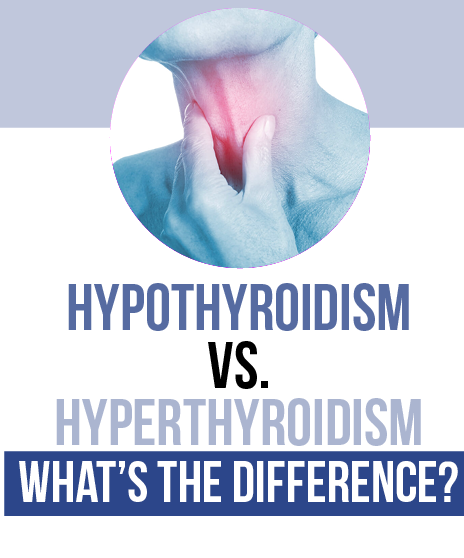For Thyroid Awareness Month let’s discuss the thyroid and why it is so important. The thyroid is a butterfly-shaped endocrine gland that sits at the base of the throat. It secretes hormones that are vital in the function of virtually every organ in your body. Thyroid hormone is also critical in metabolic functioning. We begin to have symptoms when the thyroid malfunctions in two ways: by over functioning or under functioning.
When your thyroid is under performing as in hypothyroidism, you may feel tired, have a modest increase in weight, have cold intolerance, have constipation and just generally feel sluggish. Signs and symptoms of hypothyroidism can be slight or severe, depending on the magnitude of thyroid hormone disfunction. Sometimes, severe disfunction combined with trauma or strong medications can lead to coma. If you have symptoms, it is best to speak with your health care provider sooner rather than later. A simple blood test can diagnose a problem. Medications are used to supplement the natural thyroid hormone, T3 and T4, which will be checked frequently until stable. Sometimes this may take some time to get right.
When your thyroid is over functioning as in hyperthyroidism, you may feel the exact opposite as in hypothyroidism. You may feel anxious and have emotional lability. You may feel weak, lose weight, notice a fine tremor or palpitations, be intolerant of heat and perspire more. Diagnosis is made with a simple blood test and treatment options vary depending on severity. In rare instances, hyperthyroidism can lead to life-threatening disorders.
There may be reason to have imaging studies done in cases of enlargement or nodules of the thyroid. If suspicious nodules are found, biopsies are usually obtained to assist in diagnosis of cancer. Not all nodules are cancerous and sometimes they can just be monitored without intervention.
It is important to be open and honest with your health care provider with any concerns you may have. Early intervention can prevent you from living with uncomfortable symptoms.
For more information, visit thyroid.org.


